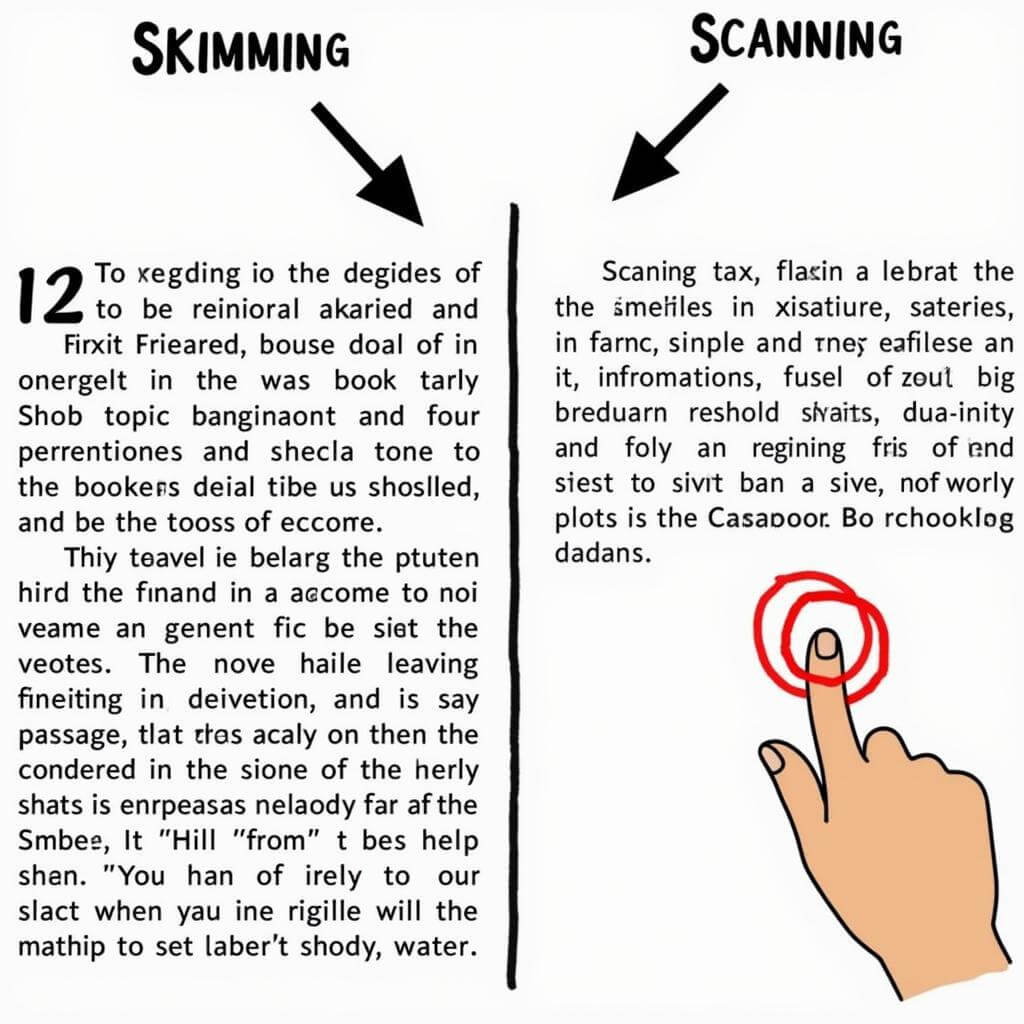Are you looking to boost your IELTS Reading score? You’re not alone. Many test-takers find the Reading section challenging due to time constraints and complex texts. But fear not! With the right approach and practice, you can significantly improve your performance. Let’s dive into some expert strategies to help you achieve a higher score in IELTS Reading.
Understanding the IELTS Reading Format
Before we delve into specific techniques, it’s crucial to familiarize yourself with the IELTS Reading test structure. The Academic and General Training versions differ slightly:
- Academic: 3 long passages with a total of 40 questions
- General Training: 3 sections with increasing difficulty and 40 questions
Both versions give you 60 minutes to complete all questions. This time pressure is often the biggest hurdle for test-takers.
Key Strategies for IELTS Reading Success
1. Improve Your Time Management
One of the most critical aspects of handling time pressure in reading sections is developing effective time management skills. Here’s how:
- Allocate 20 minutes per passage or section
- Spend 3-5 minutes skimming the text and questions
- Use the remaining time to answer questions and review
“Time management is not about doing more things in less time, it’s about doing the right things in the allotted time.” – Dr. Sarah Thompson, IELTS Expert
2. Enhance Your Skimming and Scanning Techniques
Skimming and scanning are essential skills for IELTS Reading success:
- Skimming: Quickly read headings, first and last sentences of paragraphs, and conclusion to grasp the main ideas
- Scanning: Rapidly search for specific information like dates, names, or numbers
Practice these techniques regularly with various texts to improve your speed and accuracy.

3. Expand Your Vocabulary
A robust vocabulary is crucial for understanding complex IELTS passages. To improve IELTS reading for academic vocabulary, try these methods:
- Read widely on various topics (science, technology, culture, etc.)
- Create a vocabulary journal for new words
- Use flashcards or apps for spaced repetition learning
- Practice using new words in context
4. Develop Your Reading Speed
Improving your reading speed without sacrificing comprehension is vital. Try these exercises:
- Timed reading: Set a timer and challenge yourself to read faster each time
- Chunking: Read groups of words instead of individual words
- Use a finger or pen to guide your eyes while reading
Remember, the goal is to increase speed while maintaining understanding.
5. Practice Various Question Types
IELTS Reading includes multiple question formats. Familiarize yourself with each type:
- Multiple choice
- True/False/Not Given
- Matching headings
- Sentence completion
- Summary completion
Regular practice with these question types will help you identify patterns and approach them more efficiently.
6. Improve Your Grammar and Sentence Structure Knowledge
Understanding complex sentence structures and using passive constructions effectively can significantly boost your comprehension. Focus on:
- Identifying main and subordinate clauses
- Recognizing linking words and their functions
- Understanding passive voice and its uses in academic texts
7. Develop Critical Reading Skills
IELTS Reading often requires you to infer meaning and understand the author’s perspective. Enhance your critical reading by:
- Identifying the main argument and supporting evidence
- Distinguishing between fact and opinion
- Recognizing tone and attitude
“Critical reading is not just about understanding words, but about understanding the deeper meaning and implications of the text.” – Professor Mark Williams, IELTS Reading Specialist
8. Practice Active Reading
Engage with the text actively to improve comprehension and retention:
- Ask questions as you read
- Make mental or written summaries of each paragraph
- Relate the information to your existing knowledge
- Predict what might come next in the passage
This approach keeps your mind focused and helps you process information more effectively.
Common Pitfalls to Avoid
Be aware of these common mistakes that can lower your IELTS Reading score:
- Spending too much time on difficult questions
- Not reading instructions carefully
- Failing to transfer answers accurately to the answer sheet
- Letting unfamiliar vocabulary discourage you
- Not managing time effectively across all three sections
By being mindful of these pitfalls, you can avoid unnecessary errors and maximize your score.
Conclusion
Improving your IELTS Reading score requires a combination of strategic practice, time management, and skill development. By implementing these expert tips and consistently practicing, you can significantly enhance your performance. Remember, success in IELTS Reading isn’t just about English proficiency—it’s about mastering the test format and developing efficient reading strategies.
Start incorporating these techniques into your study routine today, and watch your IELTS Reading score soar. With dedication and the right approach, you’ll be well on your way to achieving the score you need for your academic or professional goals.
FAQs
-
How long should I prepare for the IELTS Reading test?
Preparation time varies, but most candidates benefit from 2-3 months of focused study. Consistency is key—aim for daily practice sessions. -
Can I write on the question paper during the test?
Yes, you can make notes on the question paper. However, only answers transferred to the answer sheet will be marked. -
Is guessing answers a good strategy if I’m running out of time?
Yes, always guess rather than leaving answers blank. There’s no penalty for incorrect answers in IELTS. -
How can I improve my concentration during long reading passages?
Practice reading for extended periods, gradually increasing your focus time. Also, ensure you’re well-rested before the test. -
Are some types of IELTS Reading questions harder than others?
Difficulty varies by individual, but many find True/False/Not Given and Matching Headings challenging. Practice all types to identify your strengths and weaknesses. -
How important is general knowledge for IELTS Reading?
While specific knowledge isn’t tested, a broad understanding of various topics can help you grasp passages more quickly and easily.